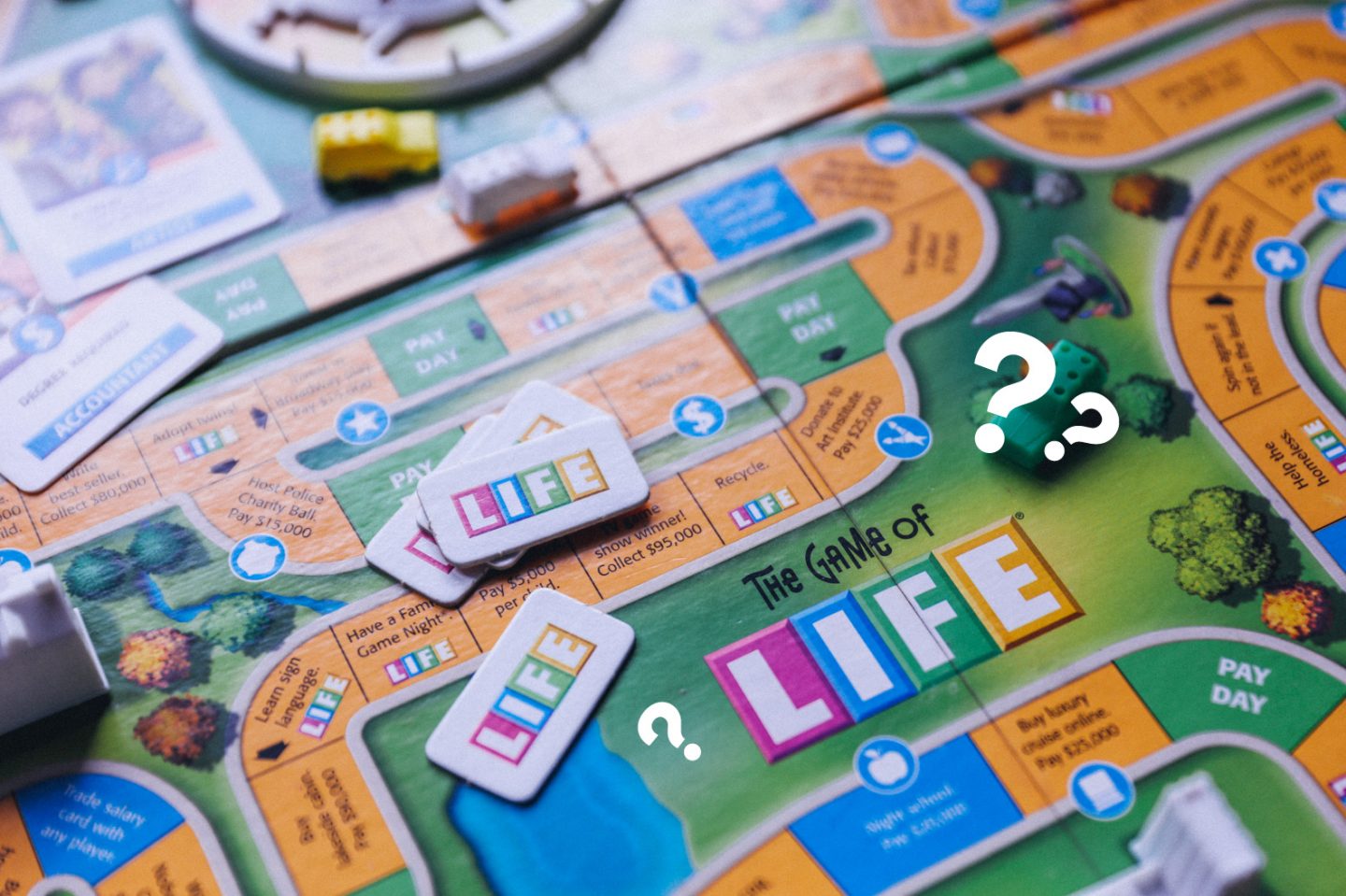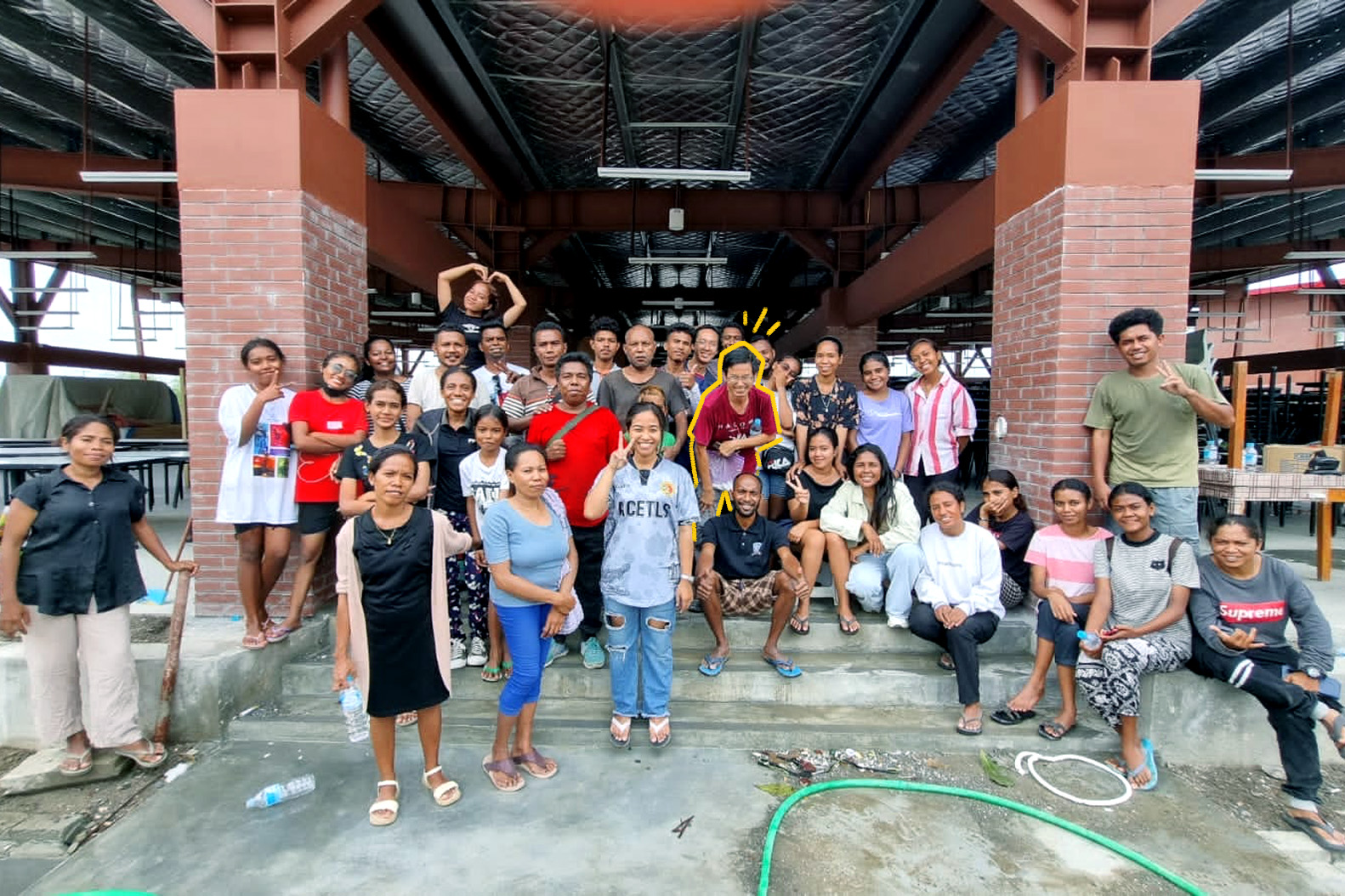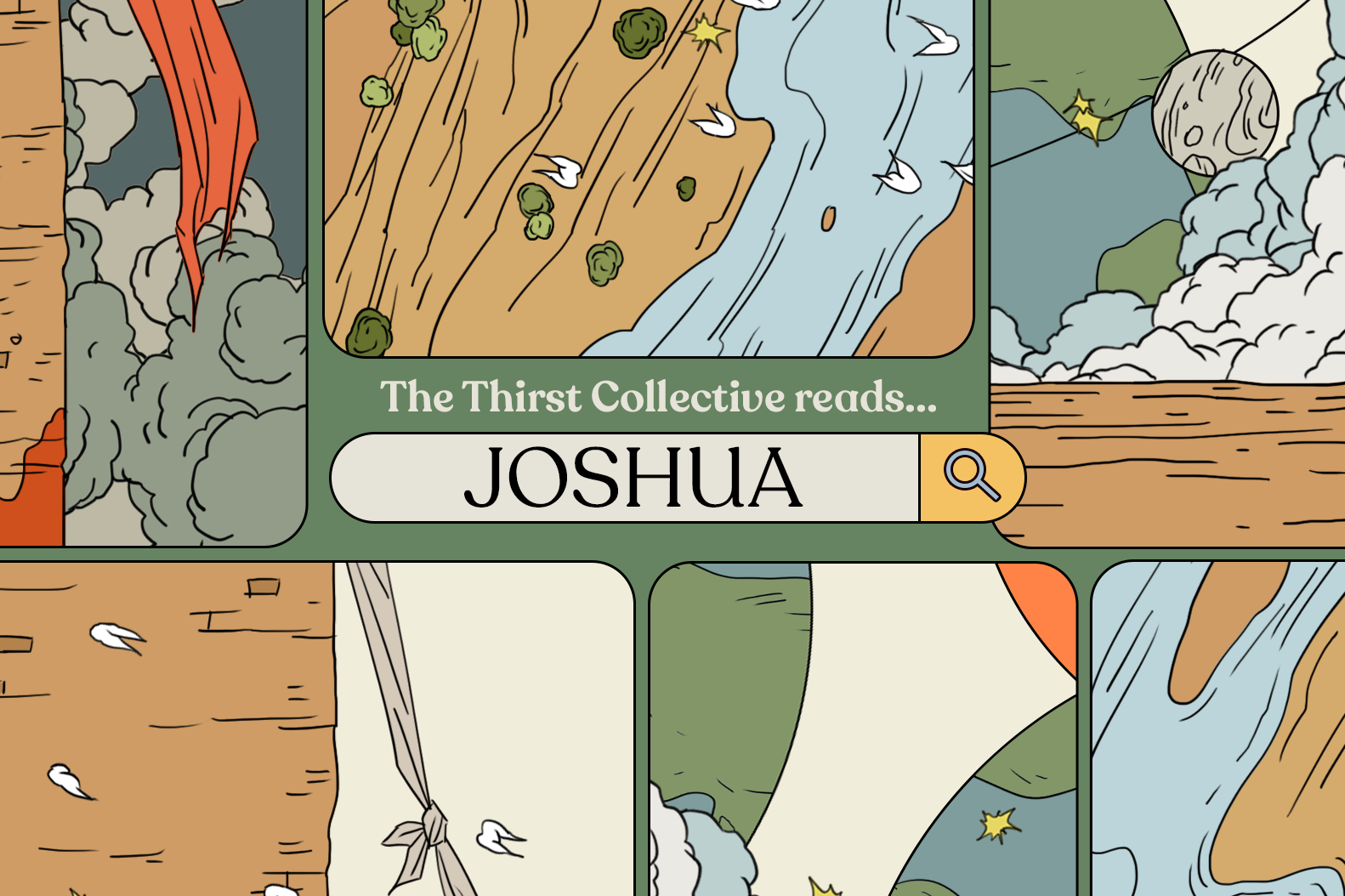At the age of 10 I was introduced to The Game of Life, a board game that brings players through a series of life decisions from college to retirement, with jobs, homes, marriage and even children along the way. Looking back almost two decades on, I have to say that the creators of the game – as simplified a simulation of life as it is – had one thing right: Life really does feel like a series of decisions.
You’ve got the small decisions: What should I wear today? Where should we eat tonight?
The scary big ones: Which university course should I apply for? Should I quit my job? Who should I marry?
And in between there’s the medium-sized ones that come up every once in awhile: Should I stand up to the person who’s being mean to me? How should I respond to unpleasant news? Do I tell the truth if it hurts someone?
Decisions, decisions. We all want to make the “right” ones that make us feel and look good. But with imperfect knowledge and the inability to see the future, how do we ever know for sure the decision we land on is the best for us? The best chance of making the right choice is then to make the wise decision from where we stand.
And for that we need a little thing called wisdom.
THE RIGHT/RIGHT CONTINUUM
Why does decision-making sometimes feel like rocket science?
Many decisions are particularly difficult to make because they aren’t right/wrong ones, but right/right ones. When you’ve weighed your options with logic and gut feeling, maybe even done cost-benefit analysis on them. Only to find you’re still stuck between two “right” answers: They both make sense but have very different outcomes, rendering our decision making extremely crucial.
This is the right/right continuum of decision making.
Many decisions are particularly difficult to make because they aren’t right/wrong ones, but right/right ones where you’re stuck between two “right” answers.
Coming to a final answer in this frustrating continuum requires wisdom like no other. You might need experience no one has had, knowledge not found on Google, and judgement not humanly known to man. Only one being could possibly possesses that kind of wisdom: God.
But the problem with His wisdom is it tends to not look or sound like any wisdom you’ve heard, which means it doesn’t always leave you looking or sounding wise in society’s eyes. It might even result in quite the opposite: What others will define as foolishness.
WHEN WISDOM IS FOOLISHNESS
Knowing that a life of free-will would mean a life of all kinds of decisions, the Bible is filled with great advice and handles for making wise ones – ones guided by the One who sees all things from the beginning to end and has wisdom far above any wisdom man can possess (1 Corinthians 1:25). This wisdom is best evident in the teachings of Jesus Christ, the Son of God who came to earth as a man.
The Gospels document many instances of Jesus interacting with people, educated and uneducated alike. He shared thought-provoking lessons that were considered radical in His time and sometimes entirely counterintuitive to normal human behaviour. A good example for reference: When someone slaps you, turn the other cheek (Matthew 5:39). How does that make any sense? We’ll explain in a bit.
Let’s first consider 3 big categories of decision making and what biblical wisdom would look like in response to them …
WHAT BIBLICAL WISDOM LOOKS LIKE
1. CHOOSING A PATH
Some of the biggest decisions affect where we go and how our lives will unfold: A school, a course, a job, a life partner. And because we cannot determine what lies ahead, we need God’s all-surpassing wisdom to show us which road to take.
The catch: His answer may not look like the journey we envision for ourselves. He might direct our steps (Jeremiah 10:23) down a path that the people around us will question and deem foolish. Why would you leave a well-paying job? Why should religion be a concern if that means a smaller pool of people to date?
The pay-off: You might not know it yet, but the God-given journey holds the answers to your deepest desires and what He made you specifically to do and be in this life. There is no better fit than a fitting done by the One who made you (Psalm 139:14). What may seem foolish at first may prove itself wise in time to come, if we trust Him to show us the way.
2. CHOOSING HOW TO ACT
In the course of the day to day, most of our decisions will be with regard to other people and how we treat them. And as with any interpersonal engagement, miscommunication, misunderstandings and misgivings are bound to arise. How then shall we act?
The catch: We return to Jesus’ Sermon on the Mount in Matthew 5. Do good to those who hate you. Be kind to the ungrateful and the evil, as demonstrated by God Himself. This means having to put down our rights and arms in exchange for a response of unexpected, crazy, foolish love. Turning the other cheek.
The pay-off: By showing our enemies – those who mistreat us – unexpected kindness, we shock them with love (Proverbs 25:21-22) and bring them one step closer to encountering the redemptive and life-changing power of God for themselves. We do not repay evil for evil, instead we overcome evil with good (Romans 12:21). We stop the spiral of hurt and misgivings by responding otherwise, as counterintuitive as it may be. Now that’s wisdom.
3. CHOOSING OUR ATTITUDE
What follows us through each moment and filters and frames the way we see our lives and community is our attitude. Because in this world we will have trouble and suffering, each in its own form and degree (John 16:33). How we face each day – especially the bad ones – with joy can sometimes feel beyond us.
The catch: Holding on to hope in God, believing that He will see us through whatever difficulty and heartaches we encounter is easier said than done. Giving up and walking away may feel like the wiser decision, and persevering with faith may be called out as foolishness.
The pay-off: Ultimately, we aren’t just choosing an attitude of hope. We’re choosing God, knowing His ways are higher. We’re actively putting aside our humanly responses to all kinds of circumstances and looking to Him for His view on things. And while He comforts us in our grief, He places hope in our hearts to take each new step with grace and strength.
BE THE FOOL FOR CHRIST, BUT PRAY FOR WISDOM
With the myriad of self-help and Internet wisdom available today, it’s easy to seem like fools when we commit to doing things God’s way (1 Corinthians 4:10). Because within Christ’s teachings and calling of his disciples to be countercultural is the inherent need to reject the world’s wisdom – the standards of the age – and embrace the “foolish” wisdom of the Most High God (1 Corinthians 3:18).
The Gospel we profess to believe in started with a great “foolish” act. Jesus put aside his place with God, his deity, and humbled Himself to the status of not just a man but a servant (Philippians 2:7). He came not to be served as the King that He was, but to serve and suffer for the salvation of humanity (Mark 10:45).
It was the one great act that shocked the world – an act of unconditional, sacrificial love that continues to confound us today. Why would He do that? Why would He pay for sins He never committed Himself?
The Gospel starts with a great “foolish” act. Jesus put aside his place with God, and humbled Himself to serve and suffer for the salvation of humanity.
Yet it was the divine wisdom of God that saw this decision of folly as necessary. On our own, paying for our own sins would mean eternal separation from Him. There is nothing we can do to reconcile ourselves back to Him, by our own merit and good works. And so He paid it all. We simply have to believe that Jesus is the Way, the Truth and the Life (John 14:6).
If we desire to be set apart, holy like He was, we cannot so easily subscribe to dominant culture, so much of which is self-beneficial, self-glorifying and self-sufficient (James 3:15). At the same time, we must pray for discernment to tell godly foolishness from plain old foolishness, an ever-increasing knowledge of God’s ways and good judgment to live counter-culturally as Jesus did.
This is the wisdom we want for the decisions we need to make in this Game of Life.
“But the wisdom from above is first of all pure. It is also peace loving, gentle at all times, and willing to yield to others. It is full of mercy and the fruit of good deeds. It shows no favouritism and is always sincere.” (James 3:17)









